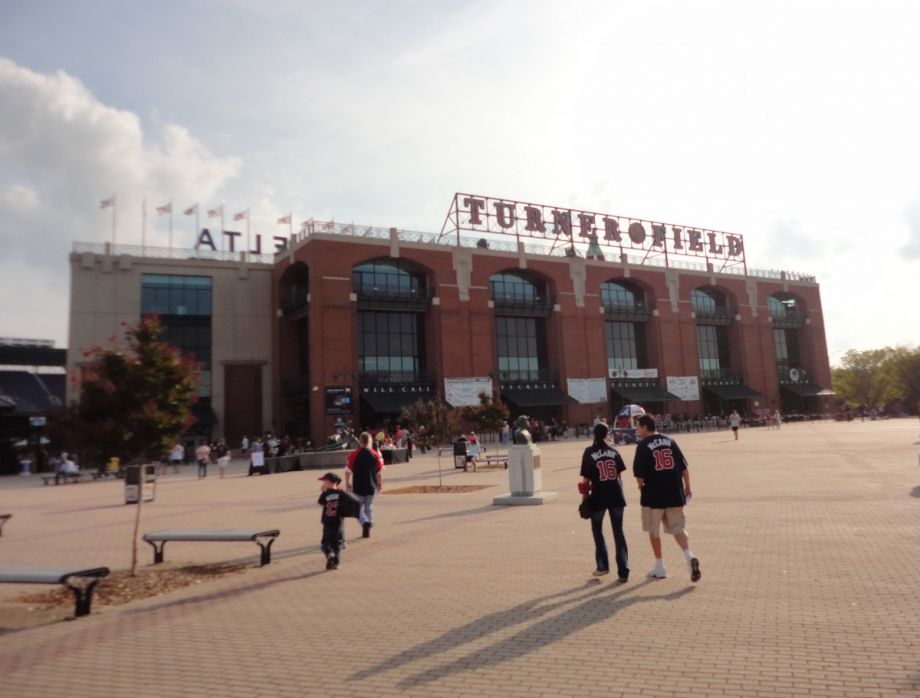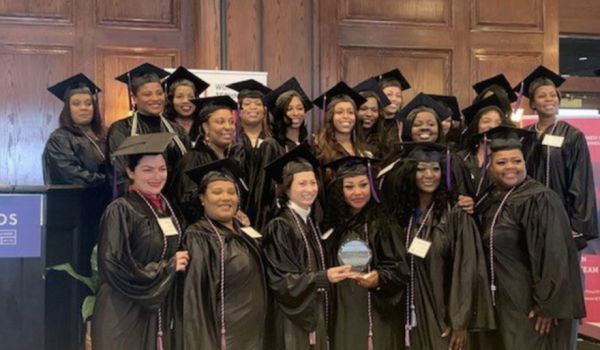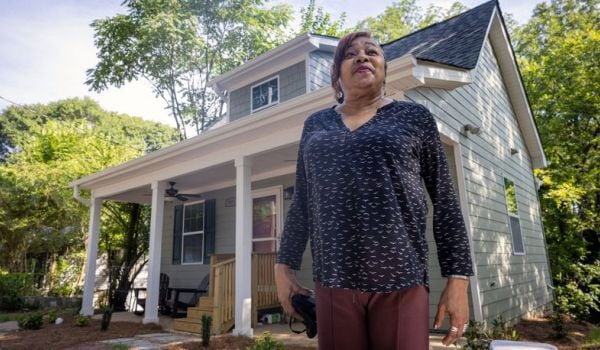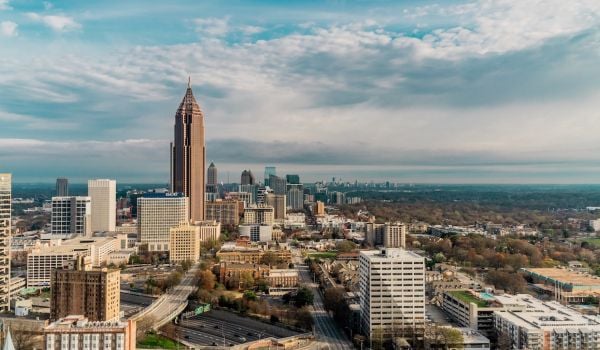It was the birth of a stadium, the Staples Center in Los Angeles, that sparked the modern-day practice of community benefits agreements (CBAs). Now, in Atlanta, a death of a stadium has spurred communities to rally for a CBA around its repurposing.
Protesters have set up camp next to Turner Field, former home of Major League Baseball’s Atlanta Braves, The Atlanta Journal-Constitution reported last week. The protest is now into its tenth day, according to Right to the City, a national tenant organizing network.
Turner Field was home to the Atlanta Braves until the end of the 2016 MLB season, but the team started the 2017 season at a new stadium in the Atlanta suburbs, about 10 miles away. One sportswriter called the move out to the suburbs “an affront to baseball and democracy.” Vice wondered if the move was “the worst sports deal ever.”
Mayor Kasim Reed told Next City in 2014 that the decision to let the team leave the city “was a very tough emotional decision but an easy business decision. In addition to real estate, they were asking for $150 million to $200 million. So basically that’s putting $200 million on a credit card for the team’s private owner and then paying millions in interest on that debt. Spending that kind of money that way would mean not being able to deliver the things we’ve promised — infrastructure improvements, safer streets and so on — to the people of Atlanta. I was not going to throw away the commitments I made to Atlanta to subsidize a private business.”
Reed also mentioned at the time that Georgia State University had expressed interest in what the Braves were leaving behind, and in January, a development team led by Georgia State purchased the Turner Field site for $30 million, the Journal-Constitution reported. The university plans to remake the field into its new football stadium.
Surrounding residents want a piece of the redevelopment pie as well as measures to prevent displacement.
Georgia State University President Mark Becker told the Journal-Constitution that the demonstrators are pulling “a publicity stunt,” and that the university and its partners are working in good faith with neighborhood leaders to address a number of development concerns. The head of their lead development partner added that talks with a group of community leaders have been in progress for nearly two years, on matters including zoning, infrastructure, participation of minority-owned businesses and other issues.
A community benefits plan with community partners formed around the new Atlanta Falcons football stadium in another part of the city has shown at least some promising results of supporting the neighborhood in new ways.
An online petition created by Occupy Our Homes Atlanta lists demands from a Turner Field CBA for flood alleviation, improved transportation and new public space; jobs for residents and opportunities for training, education, and services for people of all ages; housing for people of all incomes and displacement prevention for existing residents; and safer streets and new places to shop for people in the neighborhood. And they’re asking for these demands in the form of a CBA, which is technically a legally binding document with clearly stated provisions for non-compliance.
As a step toward such a process, at-large Atlanta City Council member Michael Julian Bond has a bill on the docket that would create a trust fund to pool some or all funds generated from any sale or lease of city-owned property, or the city’s portion of funds generated from any sale or lease of property that it partially owns, within the four neighborhoods around the former Turner Field, Mechanicsville, Peoplestown, Pittsburgh and Summerhill. The trust fund would be authorized to fund construction and preservation of affordable housing, job training and community development in those neighborhoods.
The trust fund or similar setup has been used in other instances, with mixed outcomes. As part of a $150 million community benefits agreement tied to its 25-year expansion plan in Upper Manhattan, Columbia University committed $76 million of that to the West Harlem Development Corporation to make grants and fund other projects on an annual basis. But the group has faced local scrutiny for sitting on much of the money while well-known community needs go unmet. According to the group’s website, it has only two annual grant cycles, and its maximum grant size is only $80,000.
Other setups include annual or ongoing community benefits agreement negotiations, such as San Francisco’s optional CBA agreements. In this setup, companies wishing for an exemption from the city’s local payroll tax must negotiate a CBA each year (or every four years in the case of Twitter’s last such agreement with the city) for as long as they wish to have the exemption. Each negotiation provides an occasion for residents to introduce, scale up or eliminate ways to expend CBA resources.
In Detroit, 2017 brings a new ordinance online that will require developers to negotiate a CBA attached to each project on which they break ground.
Atlanta Council Member Bond’s bill is slated for a full vote next week.

Oscar is Next City's senior economic justice correspondent. He previously served as Next City’s editor from 2018-2019, and was a Next City Equitable Cities Fellow from 2015-2016. Since 2011, Oscar has covered community development finance, community banking, impact investing, economic development, housing and more for media outlets such as Shelterforce, B Magazine, Impact Alpha and Fast Company.
Follow Oscar .(JavaScript must be enabled to view this email address)
















